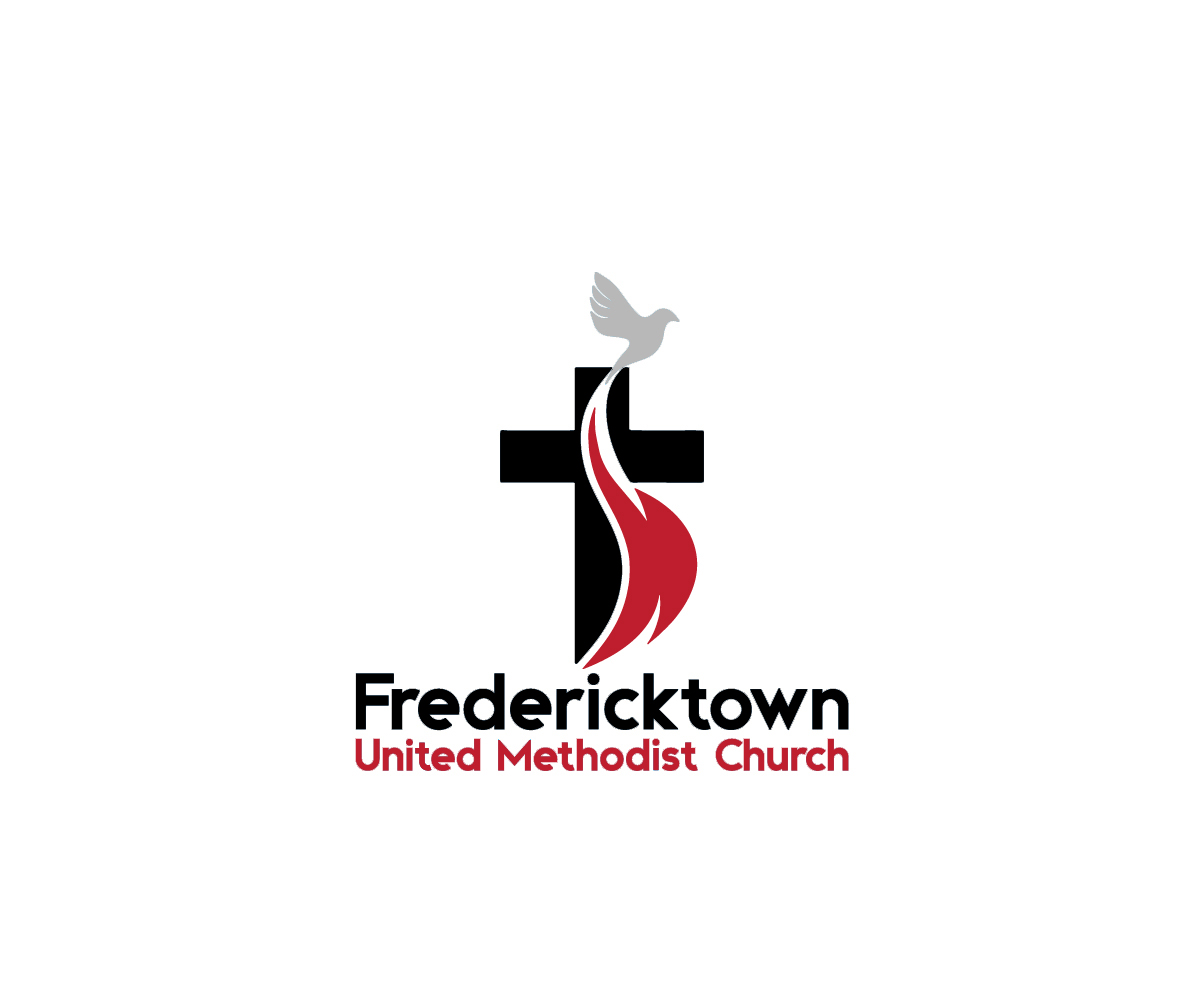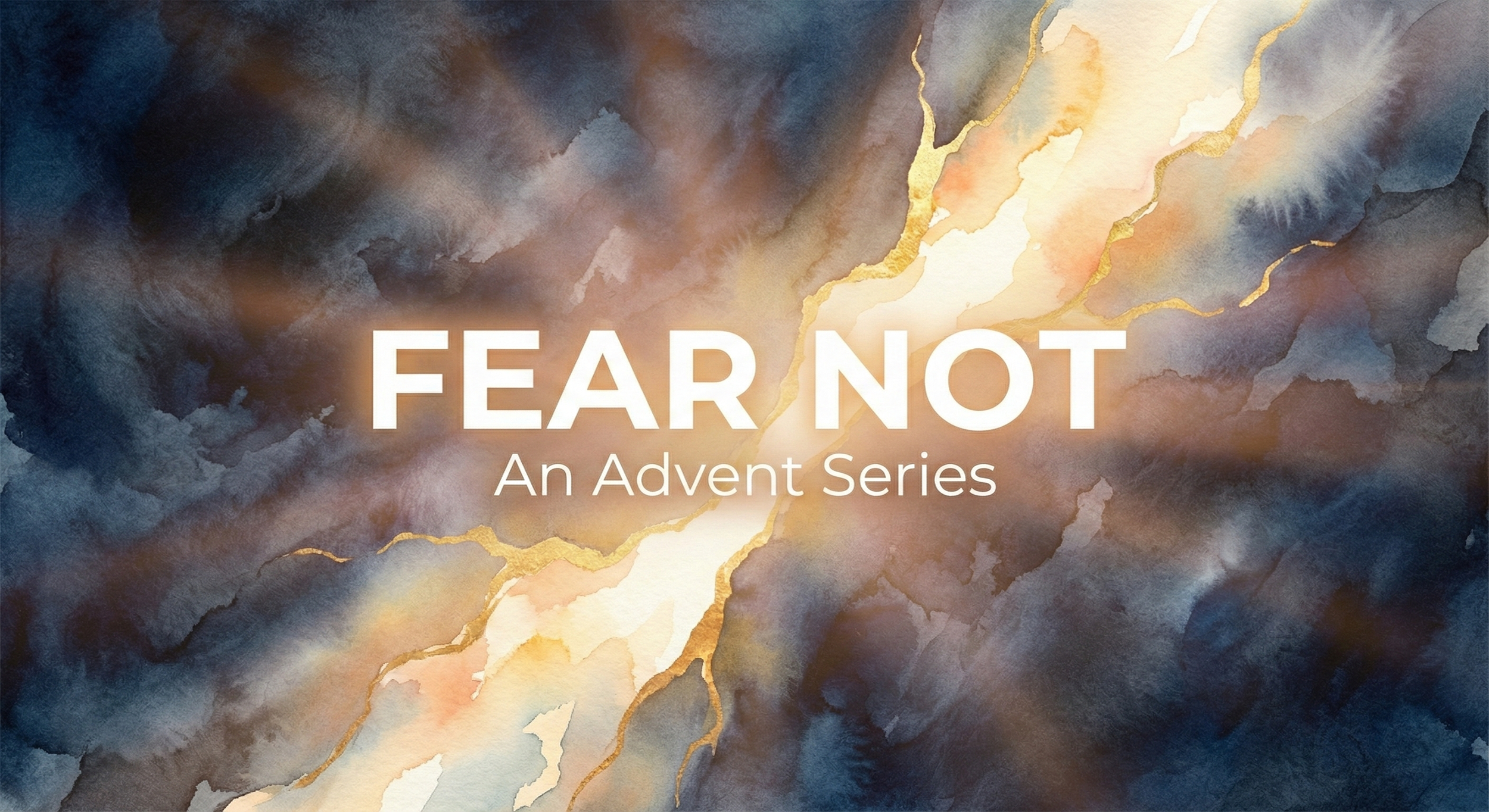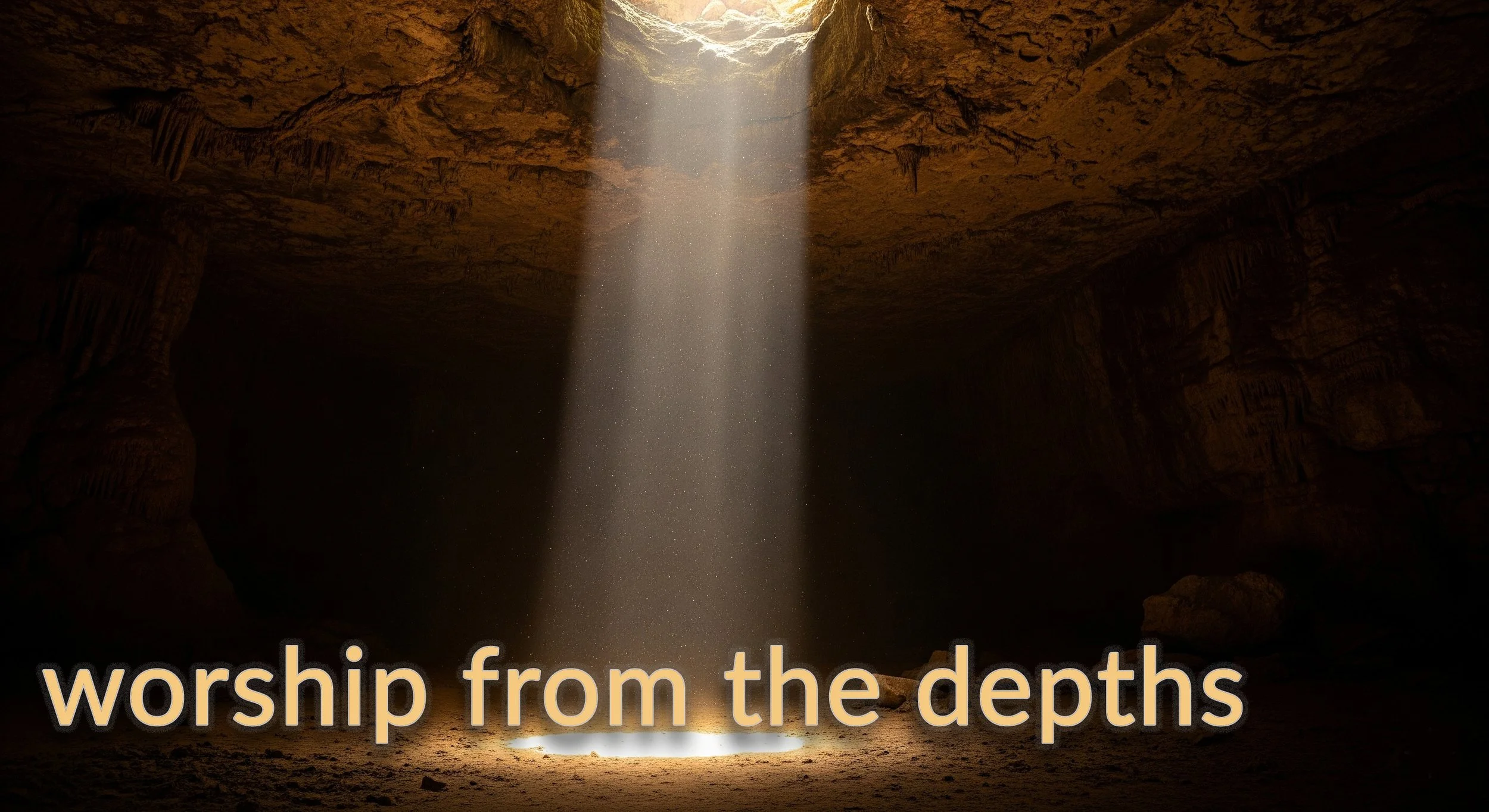Luke’s Gospel begins the story of Jesus with this opening line: “In the time of Herod…” This detail may seem minor to modern readers, however, it reveals layers of information about the fearful world Jesus entered, one filled with rampant oppression, economic disparity, uncertainty, and instability. A world not so unlike our own. And yet, throughout the stories of Christ’s birth, the whispers of angels deliver a surprising message: “Do not fear.” In our own time we might ask: is it even possible to be fearless in a fearful world? When Mary, Joseph, the shepherds, and the magi are each called into God’s redemptive story, they do not deny their fears, they move through them. They ask questions, hold fast to courage, trust in good news, and say, “Here I am, Lord.” When we find ourselves in fearful times, can we acknowledge our fears while also insisting on hope?
Join us this Advent as we learn how to hope in the midst of our fears.
Throughout Scripture and today, God sustains God’s people in the most basic of human ways: physically, with food and drink, and spiritually with food and drink for our souls. In our new series "The Overflow," as we remember what it means to be human, we find refreshment from God’s fountain of grace. The different images of cups shown in Scripture will serve as a touchpoint for exploring aspects of our relationship with God. What does our brokenness say about us? What does discipleship look like? What does it mean to seek justice? This exploration culminates in the most exciting celebration of all: that we have the refreshment of new life!
From the beginning of the Methodist movement, we have sung. John Wesley directed the denomination, and his brother Charles wrote hymns of faith to sing. As United Methodists, we sing our faith, and our songs are about calling out to God. So, over the next few weeks together, let’s turn to the song book that has sustained and defined the people of God from the very beginning: the Psalms. The Psalms give words to a variety of emotions and circumstances out of which we call upon the Lord from the depths of who we are and these words to give voice to people in our communities who may feel unheard even by God. The witness of the Psalms is that God is prepared to meet us where we are. So let us call upon the Lord as we “Worship from the Depths.”
Do you ever feel like if you just make it over the next hurdle or reach your next goal that you will have finally arrived in life? Many people do, including our Biblical friends, but guess what? That’s called the arrival fallacy, and it can keep us feeling disappointed and unhappy when we get to the “next thing” and find we still haven’t arrived at our hoped-for destination. This Eastertide, let’s learn to savor our uniquely human journey without the pressure of arrival, as we reconnect with the God of Jesus Christ who leads us in the way, providing sustenance, meaning, and hope through all our ups and downs.
This week we'll be kicking off our Lent-Easter series for 2025! It's called "Getting the Root." Through this series, we'll be following the lectionary texts from Luke as they guide us through several familiar stories. In each of these, we see how Jesus' ministry is rooted in relationships that disrupted all of the divides of his time. Looking at these through our modern lens, we miss just how shocking Jesus' words are here. He intentionally highlighted the divisive polarities of his time to emphasize the radical, inclusive, and surprising love of God. So, this season we're going to look beyond the easy answers and engage with complexity instead of avoiding it. This Lent, we'll be getting to the root of the relationships Jesus was teaching us about and how we can live them out today.
In our new four-week series beginning this week called REST, we explore the profound importance of rest in our lives. We start with Elijah's experience of divine rest, learn how to find a healthy balance of rest, work, and play, understand the rhythm of rest modeled by God, and affirm that God has given everyone the gift of rest to be embraced. Join us for the start of a new year not only filled with resolutions, but also with REST.
Advent is a season of endings and beginnings. As the calendar year comes to a close, a new church year begins. Christ’s birth ushers us into new ways of living and loving; and yet, the world as we know it spins madly on. In many ways, pregnant Mary was surrounded by endings—large and small, personal and political. But Mary proclaimed hope in a God who was and is making all things new. Christ’s birth offered a beautiful new beginning for shepherds and Magi alike—all the while, King Herod tried to bring Christ’s story to an end. When we ourselves navigate seasons filled with endings and beginnings, we need reminders. We need words that can feel like steady ground, like a path for our feet to find as we step forward into the unknown.
This week we’re starting a new series here at Fredericktown United Methodist Church called “I have some questions.” Because there are questions that we all have about God and our faith. Sometimes we might be consciously asking them and other times we might not be actively thinking them, but they’re still kinda rolling around in our heads with this sense of uncertainty where we’d like a little more information even if we don’t realize it. But there are a lot of people out there in the world today asking questions about God and about Christianity… now more than any time ever before besides the beginning of the faith itself.
Because there are a whole lot of different churches out there with different beliefs and different ways of handling things or addressing questions that people have… if they even let people ask questions at all. And a lot of the time, the experiences that people have had when they’ve asked questions haven’t been positive. Sometimes they’re looked down on and judged if they dare ask a question about the faith and other times it’s like churches expect people to just know everything right off the bat the moment they walk through the doors of the church because everyone there already knows everything and so they don’t bother explaining anything and seem aggravated when you don’t know.
So, over the next few weeks, we’re going to be taking a look at some questions that folks who are new to the faith might have and that folks who have been a part of the church for a long while might have as well because they’ve just never been asked… or maybe not thought about in these ways… and we’ll be seeing how we might answer them together.
Have you ever asked this question: Why am I here? Trying to discover the purpose of our lives can lead to a lot of questions: Who am I? Do I have a “calling”? What am I supposed to do with my life? What does purposeful living look like? Often, the world is all too ready to give us answers to these questions: promising that finding the perfect job or achieving the next milestone will make us happy. But in this series, we will embrace these questions as an invitation to discover what it is that God wants to do with the story of our lives right now.
God wants to be in relationship with us and showed us the power of unconditional love by coming to be with us. To be us. God was so determined to be in relationship with us that only God becoming human through Jesus would accomplish the wholeness, restoration and redemption the world so desperately needs. Over the next four weeks, we’ll explore our personal faith stories, begin to see others who are longing for an experience with God, learn to live in such a way that our very lives become an expression of Christ, and then practice inviting others to encounter the unconditional love of God.











